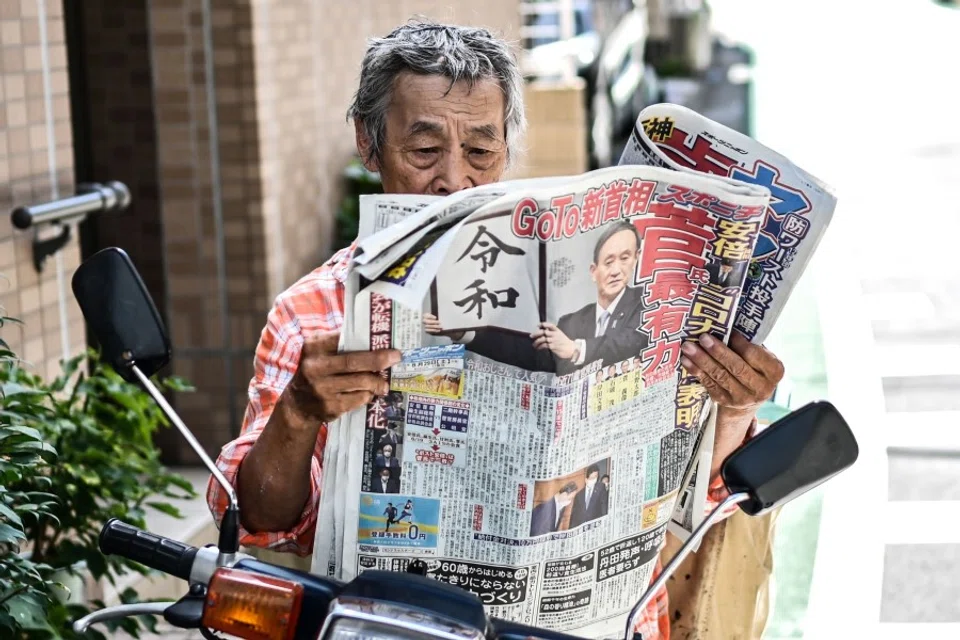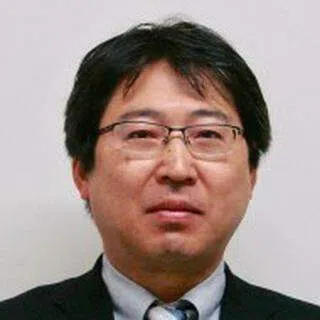How Japan will deal with China-US conflict and the Taiwan issue under the new Suga administration
Business cooperation will likely be a key theme of the China-Japan relationship under the new Suga administration, says Japanese academic Shin Kawashima. However, various challenges will continue to beset bilateral relations. All eyes are also on Nobuo Kishi, the new Defence Minister and Shinzo Abe's younger brother, who has strong ties to Taiwan.

The new Yoshihide Suga administration was inaugurated on 16 September, 2020. Seeing that Prime Minister Yoshihide Suga served as chief cabinet secretary to the Shinzo Abe administration for nearly eight years, this is, of course, the policy continuation that the eligible voters (Liberal Democratic Party MPs and party members) had hoped for.
Looking at the lineup of the new Cabinet members and the LDP appointments that have already been announced, we basically see a continuation of the Abe administration. However, Takaya Imai, a career bureaucrat at the Ministry of Economy, Trade and Industry (METI), who was the executive secretary to the former Prime Minister Shinzo Abe, has been appointed special adviser to the Cabinet. It is expected that he will then have limited and lesser influence on internal and external policy in the Suga administration, leading to changes in the policy decision-making process at the Prime Minister's office.
...the fact that LDP Secretary-General Toshihiro Nikai remains in office is a strong indication that the Abe administration's policy of emphasising a Japan-China relationship that is focused on the economy may continue.

In particular, changes are expected in areas such as diplomacy with Russia where the executive secretary wielded great influence. It is also likely that Japan's policy towards China will change to some degree. The intentions of METI were at work behind the third country business cooperation pushed forward by both Japan and China, hence the impact of the executive secretary appointments will need to be monitored.
However, the fact that LDP Secretary-General Toshihiro Nikai remains in office is a strong indication that the Abe administration's policy of emphasising a Japan-China relationship that is focused on the economy may continue.
Setting aside the issue of the appointments around the prime minister, there are major challenges in Japan's policy toward China for the Suga administration.
...they (China) will try to build a framework for the new Japan-China relationship based on the current situation where China possesses three times the economic clout of Japan and is becoming increasingly dominant in terms of its military and security presence.
Firstly, there is the issue of how to handle President Xi Jinping's state visit to Japan and what to discuss on that occasion, seeing that it is highly likely that Xi will visit South Korea before visiting Japan, and that China may want closer ties with Japan in light of the confrontation between China and the US. But, it is expected that the hardline approach with regard to territorial disputes and the East China Sea will continue, so Suga cannot afford to only focus on economic issues. Japan must also have a stable policy with regard to the "fifth political document" charting China-Japan's relations forward, which has been a frequent topic of discussion. (Note)
It is highly probable that the Chinese side will build on the current state of relations between Japan and China. In short, they will try to build a framework for the new Japan-China relationship based on the current situation where China possesses three times the economic clout of Japan and is becoming increasingly dominant in terms of its military and security presence.
Will Japan make the effort to return to past orbits and turn the clock back to the time between 2008 and 2010 before relations with China deteriorated? Judging by power relations, there is no guarantee that Japan will get what it wants. On the other hand, the Chinese cannot have everything their own way either. The focus is likely to be on how the two countries find common ground in their interests and perspectives on the world, and the ability to make realistic judgments.
Japan's thinking on its relationship with Taiwan is another major issue imposed on the Suga administration. The attitudes of Nobuo Kishi, the new Defence Minister and Shinzo Abe's younger brother, who has strong ties to Taiwan, will be the focus of attention.

Secondly, there is the issue of setting government policy for dealing with the confrontation between China and the US. Starting out as an economic conflict (tariffs), it has gone into the area of technology, and escalated into a question of value systems as stated by US Secretary of State Mike Pompeo in his speech in July. The US also seems to have its sights set on forming a coalition of the willing against China. So, what will Japan do?
There are, of course, a number of ways to respond. It is possible to pursue an ambiguous strategy, or to explore the potential for collaborating with other allies, or democracies, or regional powers to collectively respond to the China-US conflict to avoid a zero-sum situation. But, no matter what the approach, it is preferable to formulate in advance, policies on how the government will deal with the conflict, even for individual cases.
In addition, it is expected that Taiwan will become a focal point in the conflict between China and the US in the East Asia region. Japan's thinking on its relationship with Taiwan is another major issue imposed on the Suga administration. The attitudes of Nobuo Kishi, the new Defence Minister and Shinzo Abe's younger brother, who has strong ties to Taiwan, will be the focus of attention.
Editor's Note:
*President Xi Jinping and Prime Minister Shinzo Abe agreed to create the fifth political document during a meeting in Beijing last December. China and Japan have signed four documents since the two countries normalised their diplomatic relations in 1972.
The first political document, a joint communique signed in 1972 between Chinese Premier Zhou Enlai and Japanese Prime Minister Kakuei Tanaka, ended the "abnormal state of affairs" between the countries following the end of World War II. Since then, the two countries have signed three more documents in 1978, 1998 and 2008.



![[Photos] Fact versus fiction: The portrayal of WWII anti-Japanese martyrs in Taiwan](https://cassette.sphdigital.com.sg/image/thinkchina/3494f8bd481870f7c65b881fd21a3fd733f573f23232376e39c532a2c7593cbc)

